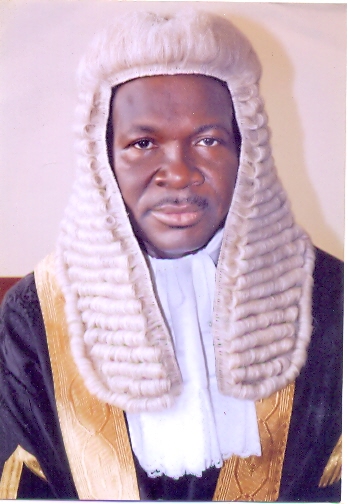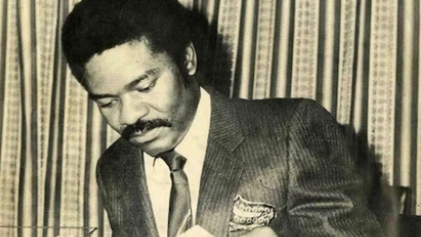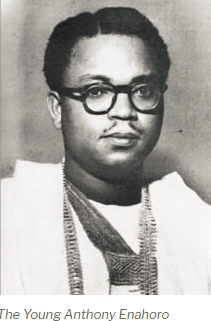Aisha Somtochukwu Yesufu
Aisha Somtochukwu Yesufu
Number of Views: 4,100 Views
Country: Nigeria
Category: Activist
Place of Birth: Kano State Nigeria
Date of Birth: Dec
12 1973
Education
Bio Description
Aisha Somtochukwu Yesufu[1] (born 12 December 1973),[2] is a Nigerian political activist and businesswoman.[3][4][5] She is the co-founder of#BringBackOurGirls movement, which brought attention to the abduction of over 200 girls from a secondary school in Chibok, Nigeria on the 14th of April, 2014, by the terrorist group Boko Haram.[3][6][7] She has also been prominently involved in the End SARS movement against police brutality in Nigeria.[8]
Early life and education
Aisha Somtochukwu Yesufu was born and raised in Kano State,[9] from Agbede in Edo State.[4][10] She experienced the difficulties of being a girl in a heavily patriarchal environment.[11] By the time she was 11 years old, she had no female friends left, as they had all either gotten married or died in childbirth. And by the time she married at 24, most of her remaining friends were nearing grandmother status.[11][4] She says her love of books helped her during childhood, reading made her realize "there was a world beyond the ghetto that I was growing up in and I wanted that life".[11] She applied to the Nigerian Defence Academy in 1991, but was rejected because of her gender (she was a woman).[11] In 1992, she was initially admitted to Usmanu Danfodiyo University, however, after the school closed she enrolled at Ahmadu Bello University to study medicine. Yesufu later left Ahmadu Bello University as well, after the school was shut down following the killing of a professor in 1994. She ultimately completed her education at Bayero University Kano, from which she graduated with a degree in microbiology.[11][4]
Activism
Njideka Agbo wrote of Yesufu in The Guardian in 2019, "Often maligned for her stance on national issues in Nigeria by pro-government voices, she is not a run-of-the-mill activist. Her penchant for naming names has earned her truckloads of enemies, and perhaps, admirers".[11]
#BringBackOurGirls
After the terrorist group, Boko Haram abducted 276 schoolgirls in 2014, Yesufu and Oby Ezekwesili co-founded the #BringBackOurGirls movement to push for their rescue.[3][6][12] Yesufu was among the women protestors who marched on the Nigerian National Assembly, in the nation's capital, Abuja, on 30 April 2014.[10][7]
End SARS
Yesufu has been a prominent member of the End SARS movement,[8] which began in 2017 and draws attention to police brutality in Nigeria and draws its name from a controversial police unit in the Nigeria Police Force called the Special Anti-Robbery Squad (SARS). A photograph of her wearing hijab at an End SARS protest became an iconic symbol of the movement.[6] Yesufu has said of the End SARS protests, "I will not be an irresponsible parent and leave this fight for my children. I am ready to sacrifice my life for my children to live. I brought them to this world, and I need to fix the world I put them in."[13]
Awards
Yesufu was among BBC's 100 Women in 2020.[14] Yesufu was included in a list of the Top 100 Most Influential Africans by New African magazine in 2020.[8] In 2023, Reputation Poll International (RPI) named Aisha Yesufu as one of the 14 Nigerians who made the list of '100 most reputable Africans'.[15] She was also included in the list of the 50 Most Impactful Voices List to mark 2023 International Womens Day. Additional Yesufu has won the Martin Luther King Award.[16]
Personal life
Yesufu married her husband, Aliu Osigwe Yesufu, in 1998.[11][17] They have two children, Amir and Alliyyah.[6]
References
- ^ Aisha Yesufu [@AishaYesufu] (2 June 2021). ""My name is Aisha Somtochukwu Yesufu..."" (Tweet). Retrieved 3 June 2021 via Twitter.
- ^ "About Aisha Yesufu". Archived from the original on 7 June 2021. Retrieved 19 June 2021.
- ^ a b c "Aisha Yesufu: 'End Sars is a fight for the next generation of Nigerians'". BBC News. 27 October 2020. Retrieved 3 June 2021.
- ^ a b c d "Most of my mates were almost grandmothers when I married at 24 Aisha Yesufu". The Punch. 21 April 2018. Retrieved 3 June 2021.
- ^ "Aisha Yesufu Protest + Buhari Pledges Support for Women Trending With Ojy Okpe". Arise News. 9 March 2022. Retrieved 23 March 2022.
- ^ a b c d "Aisha Yesufu dey wear hijab protest SARS Nigeria and police brutality". BBC News Pidgin (in Nigerian Pidgin). 13 October 2020. Archived from the original on 1 January 2021. Retrieved 3 June 2021.
- ^ a b "Aisha Yesufu: Nigerian socio-political activist personal profile". BBC News Pidgin (in Punjabi). 3 February 2021. Retrieved 24 August 2024.
- ^ a b c "Aisha Yesufu: 100 Most Influential Africans". New African. 2020. Archived from the original on 11 September 2020. Retrieved 3 June 2021.
- ^ "Aisha Yesufu a Profile in Courage". THISDAYLIVE. 18 October 2020. Retrieved 17 March 2022.
- ^ a b "Aisha Yesufu, the hijab-wearing revolutionary". TheCable. 11 October 2020. Archived from the original on 16 November 2020. Retrieved 11 October 2020.
- ^ a b c d e f g Agbo, Njideka (25 August 2019). "Aisha Yesufu: The Voice Of Humanity". The Guardian. Retrieved 25 August 2019.
- ^ Faul, Michelle (23 June 2016). "Family demands news of Chibok girl who escaped Boko Haram". AP News. Archived from the original on 3 June 2021. Retrieved 3 June 2021.
- ^ Silas, Don (9 October 2020). "End SARS: 'I'm ready to sacrifice my life for my children to live' Aisha Yesufu". Daily Post. Archived from the original on 13 October 2020. Retrieved 11 October 2020.
- ^ "BBC 100 Women 2020: Who is on the list this year?". BBC News. 23 November 2020. Retrieved 23 November 2020.
- ^ Shaibu, Nathaniel (1 January 2023). "Jonathan, Adeboye make '100 Most Reputable Africans' list". Punch Newspapers. Retrieved 25 January 2024.
- ^ Erezi, Dennis (4 February 2021). "Owonikoko, Yesufu, others bag Martin Luther King award". The Guardian Nigeria News - Nigeria and World News. Retrieved 25 January 2024.
- ^ "Aliu Osigwe Yesufu My #HeForShe Champion #AliuYesufuIs60 Aisha Yesufu". Retrieved 17 January 2024.
External links






